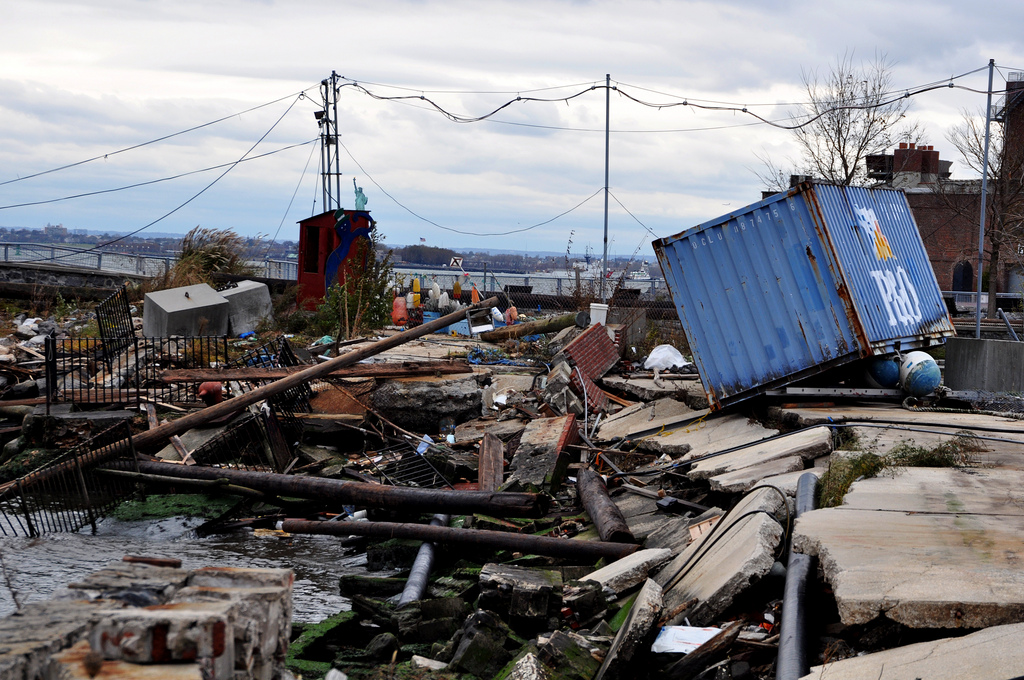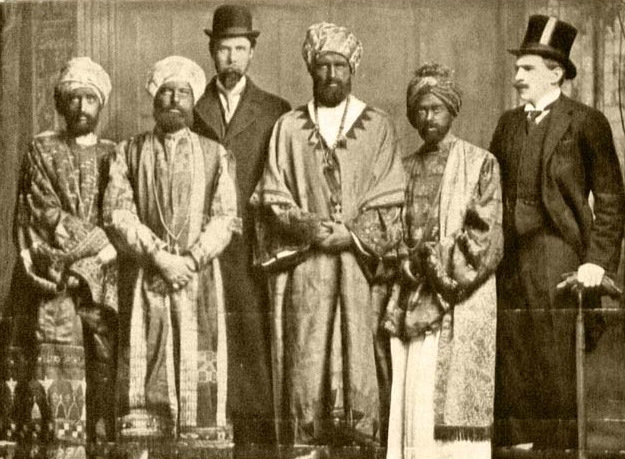Around the corner from the Astor Place Riot compound is the famous Brooklyn Lyceum, a performance space and onetime public baths which is currently the site of Ugly Rhino's Warehouse of Horrors: Gowanus '73—a boozy bit of Halloween theater which runs through November 1. We got Ugly Rhino managing director Bryce Norbitz on the phone this morning, to ask about Halloween, bathhouse raves, and the headaches that come with organizing a theater-party in a 10,000 square foot space.
So tell me about Gowanus 73.
It's sort of a psuedo-interactive traveling theater piece. It's the entire Lyceum, the top floor, middle, bottom, it's enormous. I think it's a 10,000 square foot warehouse. Audiences follow a performer around the space and see different scenes. It's a little different each time. It kind of opens with a party atmosphere, and it always ends in a dance party.
The show is inspired by real life events at the Brooklyn Lyceum when it was Public Bath #7, as well as events in the general Gowanus area. There's a crooked cop and some mobsters and prostitutes. It's kind of a high camp investigation into a murder.
Fun!
It is fun! We've been selling out. People have a good time. It's very social. If you're not with your friends, you get to chat about what you saw and what they saw. A lot of people always wanna hang out and talk about their experiences after the show.
It sounds a little lighter than something like Sleep No More.
It's got a narrative. It's dialogue heavy. No, not dialogue heavy, but it is dialogue based. You're not directing yourself around the space. So it's a little different from Sleep No More in that fashion. It's more like seeing a play, while Sleep No More is more atmospheric. It's definitely lighter, and it has more of a Friday night out kind of vibe to it.
People have bought tickets faster and more seriously to this show than anything we've done, because I think people are really hungry for this kind of interactive show. Even though it's not a scary show, there's suspense built up. There's a murder or two in the last scene, and everyone's watching to see what happens and when they do, we get a lot of screams and gasps.
What's tricky about organizing such a sprawling show?
You don't want the audience to see someone resetting something. You don't want to hear the same scene that you just saw. That is a little bit tricky, but there are times when it works to our advantage. That took a bit of time to figure out.
It's a big timetable. It took like seven Excel documents to put this thing together. It's like a big map. It takes a lot of timing. If the actors get really heated in an improv, that's great, but if it's going on too long, that's where the difficulty comes in. How do we make sure that it's action-packed and keep everyone on schedule at the same time?
Our actors are fantastic. They've done this kind of thing with us or with other people before. A lot of them are Ugly Rhino associate artists, and they're just so adaptable, and great at little things like improvising conversations with audience members. We've been able to, as the days go by, make it a more and more full experience.
Are you a big Halloween person?
No. But everyone else is! I don't think I've ever been to a haunted house in my adult live, and maybe as a kid twice, when I went into the corn maze and I cried and had to be taken out. I'm not a big Halloween person, but my two collaborators are very big on it. I know what scares me, so I know what scares other people. We wanted to put somethign together that wasn't like—Boo!—and someone pops out. Why not not spend your time having a real play, a real story? It's pretty historically accurate, or at least in a referential kind of way.
How did your research process work?
The current building owner we're very close with, and he's in touch with everyone that's alive who owned the building before him. A lot of stories came down the line that way. There's a window in the Lyceum, so that if you're in the street you can hop the fence and climb down to where the baths are. In the early '70s, kids would climb down there and have these huge parties. They called them raves, so we called them that too. This was before disco was a thing, so it was a pretty rowdy scene.
We also heard these stories about these local murders, and though, what a perfect and true setting. A rave party in the early '70s where people may or may not be getting murdered? That's a perfect show, especially for Ugly Rhino, because everything we do has a party attached to it.
I'm trying to talk my girlfriend into coming next week. What should I tell her?
It's a great show for someone who doesn't want your typical haunted house experience, someone who wants to have their play and drink it too. Hey! I just thought of that! That's pretty good, right?








